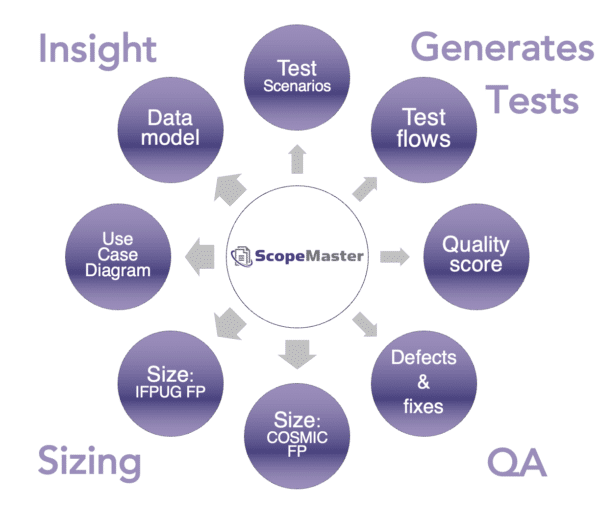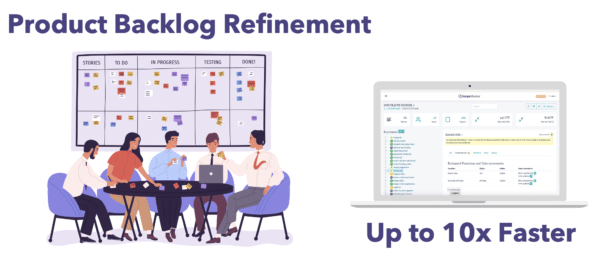Helping the Product Owner with Automation
According to the Scrum Guide at Scrum.org, the Product Owner
is one person who represents the organisation and is accountable for effective Product Backlog management, which includes:
- Developing and explicitly communicating the Product Goal;
- Creating and clearly communicating Product Backlog items;
- Ordering Product Backlog items; and,
- Ensuring that the Product Backlog is transparent, visible and understood.
According to the ScaledAgileFramework:
The Product Owner (PO) is a member of the Agile Team responsible for defining Stories and prioritizing the Team Backlog to streamline the execution of program priorities while maintaining the conceptual and technical integrity of the Features or components for the team.
© Scaled Agile, Inc.
My own definition of role reminds us of the overall responsibility of the PO:
The responsibility of the product owner is to communicate the business and users’ goals and needs so that the team can work efficiently on value-prioritised capability delivery.
Automate the tedious tasks

ScopeMaster automates many of the Product Owner's more tedious tasks
PO responsibilities breakdown
Again I am going to stray from the SAFe and Scrum definitions slightly, as the role of the BA and the Product Owner overlap, so here is my list of responsibilities of the product owner to ensure that:
- there is a clear, measurable high level goal (Project Manager shares this responsibility)
- the team understand the capabilities required to meet the goal.
- the backlog of Epic, user stories and tasks is maintained
- the value and priority of each backlog item is articulated
- adequate detail of each backlog item is sufficiently analysed and documented early enough to minimise rework.
- functional backlog items are maintained as concise, clear, consistent user stories
- Epics are broken down into user stories early enough to avoid rework and waste
The Product Owner must ensure that User Stories are:
ScopeMaster will help the PO achieve high standards on 9 out of 10 of the above quality attributes, in a fraction of the time of doing so manually. It’s like the Grammarly® for user stories. Request a demo of ScopeMaster
Value of a great PO
When the product owner performs their job well, the team is able to understand the value of what they are doing (helps motivation), The team has sufficient detail in a timely manner (is “ready”) to avoid rework and waste (reduces delay and frustration). There is always a justifiable reason why the team is working on any given backlog item. The product owner ensures that acceptable understanding of quality (ie definition of done) is understood.
Impact of a poor PO
The product owner (a role sometimes performed by a business analyst) is absolutely essential to ensure that the users get what they need. The PO has the strongest influence on what work (backlog items) the team should work on next (ie. prioritise) so the PO role is essential in ensuring that the team does the right work. Incorrect priorities will affect the outcome somewhat, but these are usually spotted and corrected by the next sprint planning session. However if the articulation of user needs lacks clarity, lacks consistency, lacks detail, then the team will be doing the wrong work and may have to completely redo it. This will have a significant negative impact on the team productivity and morale.
Be a 10x Product Owner
Doing the work to maintain a backlog of good requirements (Epics, user stories, tasks) is hard. It requires a high attention to detail. Thanks to ScopeMaster, much of this work is made easier, faster and more thorough. This will save the product owner time AND in some cases be more thorough.
Of the 10 characteristics of a good quality user story, ScopeMaster will help the product owner to do their job better with 9 of them. That’s 9/10 categories where ScopeMaster will help the PO achieve better quality user stories thats 10x on the on refinement work. As a PO using ScopeMaster, you will save so much time that you will be able to reassign some of your attention to the one area that ScopeMaster cannot help – Valuable, is this user story valuable to you?
ScopeMaster continually analyses your requirements and advises you when corrective action is needed

